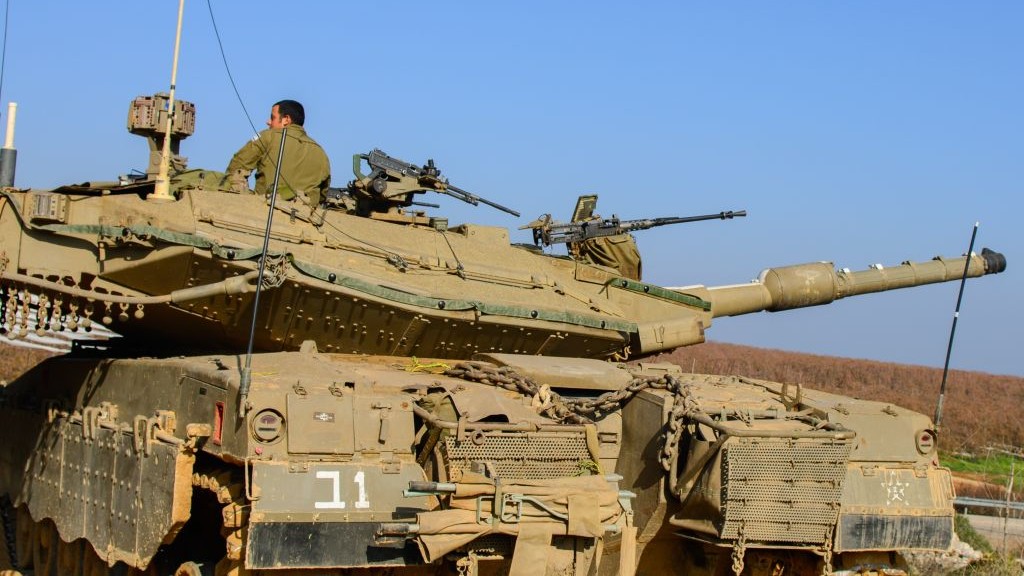Senior Israel Air Force officer: Israel Still Striking In Syria
قيادي رفيع المستوى في قيادة القوة الجوية الإسرائيلية: لا تزال إسرائيل مستمرة في هجماتها داخل سوريا
Jerusalem Post/May 23/18
The IDF had said earlier that the Iranian Revolutionary Guard Corp’s Quds Force had launched 20 Fajr-5 and Grad missiles towards Israel’s front defensive line in the Golan Heights. Israeli jets have continued to strike targets in Syria following the recent Iranian missile barrage against IDF posts in the Golan Heights, a senior Israel Air Force officer said on Tuesday. “We can assume that there have been strikes since the last events in Syria. We have maintained our freedom of action over Syria,” he said during the Senior Air Force Conference in Herzliya. Stressing that Israel will continue to carry out air strikes in the war-torn country, he said that Israel will continue to work with “determination” to thwart the entrenchment of Iran in Syria and the arming of Hezbollah. “The Iranian resolve in the region continues and we keep operating and disrupting below the threshold of war,” he said.
Speaking earlier at the conference, Israel Air Force Commander Maj.-Gen. Amikam Norkin said that Iran had launched 32 missiles toward Israel earlier in May.
“Iran launched 32 missiles… we intercepted four of them and the rest fell outside of Israeli territory,” he said at the conference, which was attended by more than 20 air force commanders from around the world.
The IDF had said earlier that the Iranian Revolutionary Guard Corp’s Quds Force had launched 20 Fajr-5 and Grad missiles towards Israel’s front defensive line in the Golan Heights. In response, Israel struck 50 mainly Iranian targets in Syria in an operation called “House of Cards.”
According to Norkin, Syria fired over 100 anti-aircraft missiles at Israeli jets; in response, Israel destroyed the anti-aircraft batteries.
Israel has been “managing a campaign against Iranian forces, especially on Israel’s northern border” for the past two years, Norkin said. He said that the country had been preparing for a direct attack from the Quds Force since mid-April in response to a strike allegedly carried out by the Jewish state against an Iranian-operated airbase in Syria, which killed seven IRGC soldiers. “We have been watching what the Iranians were doing around us,” Norkin said. “The Quds Force is set up at the T4 base, which is some 250 kilometers from Israel. From this base they tried to attack using an armed drone that infiltrated Israel several months ago from our eastern border. After that incident, we determined that they were continuing to store weapons at the base, including aerial defense capabilities that we attacked over the past month.”The IAF had received extensive intelligence several days earlier that the Quds Force in Syria was planning an attack on Israel; it carried out a preventative strike on a base in Kisweh outside Damascus, effectively thwarting the attack. “In recent weeks, we realized Iran had sent missiles and long-range rockets to Syria, including [BM-27] Uragan launchers that we attacked north of Damascus,” Norkin said.
It is believed that due to that strike Iran carried out their backup plan, the launching of 32 Fajr-5 and Grad missiles towards Israel at midnight. The night before the missile salvo, the military instructed local governments to open bomb shelters to residents of the Golan Heights following the identification of “abnormal movements of Iranian forces in Syria.”The army had raised the preparedness of “troops for an attack” and deployed air defenses at several locations in the north of the country.During the Israeli retaliation, the Syrian regime fired dozens of air-defense missiles from SA2, SA17, SA22 and SA5 missile batteries. No Israeli jets were hit and all returned to base safely.






















